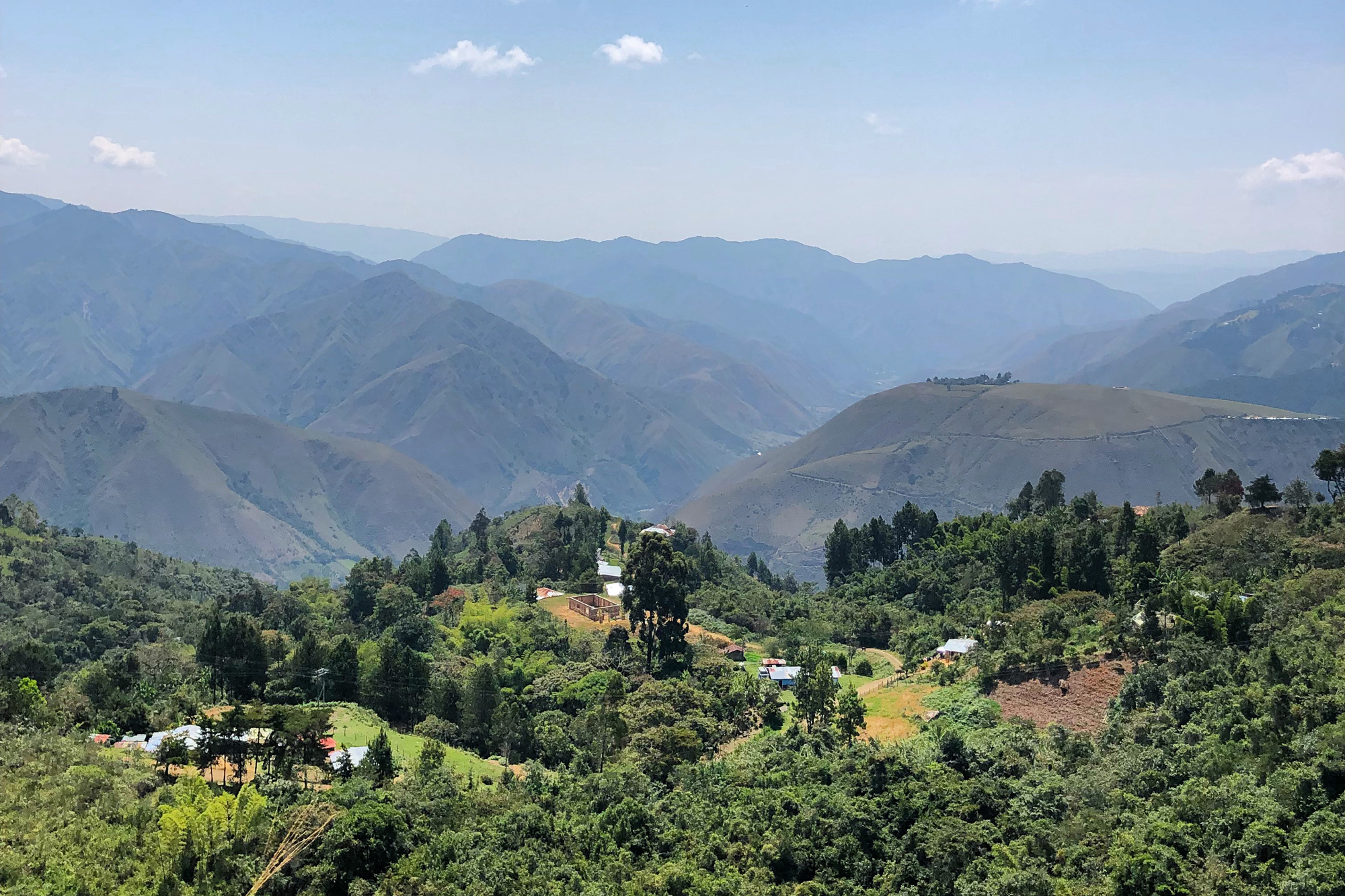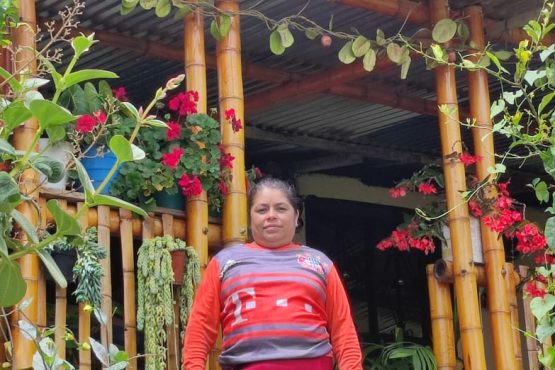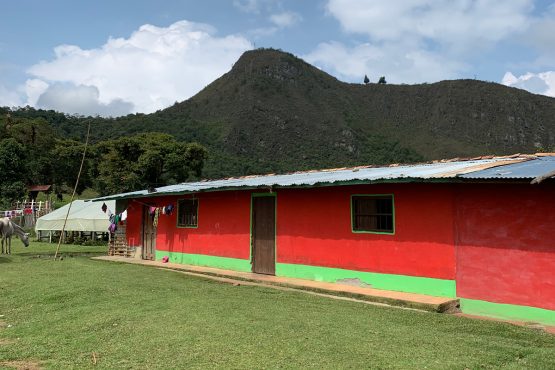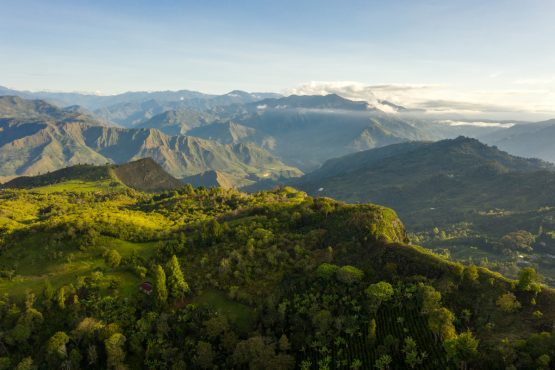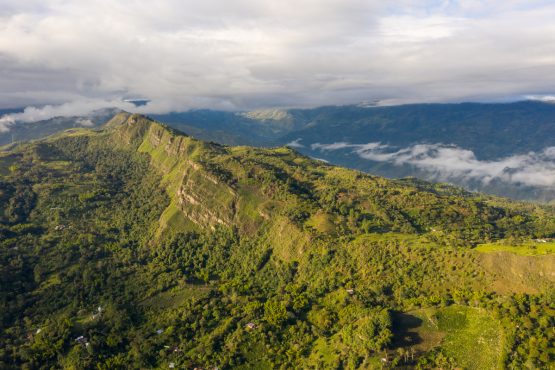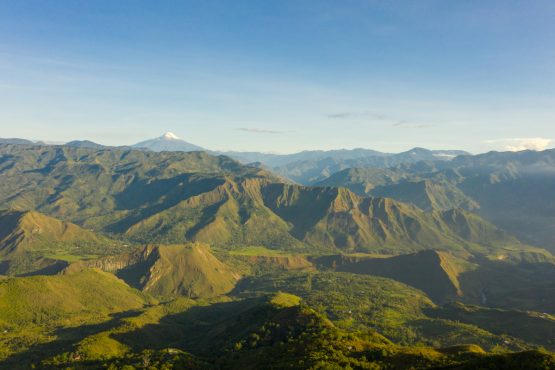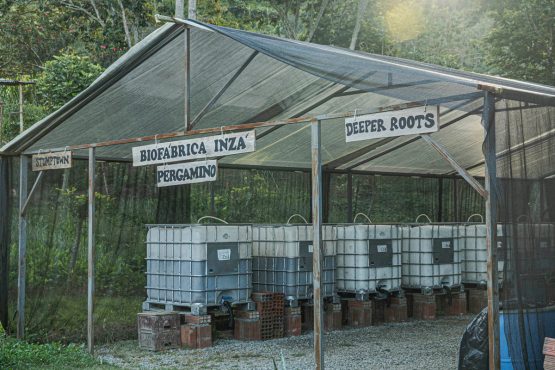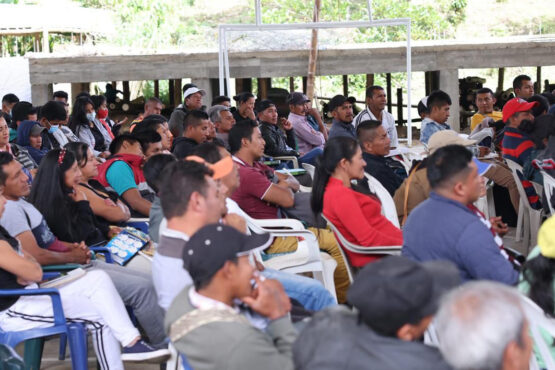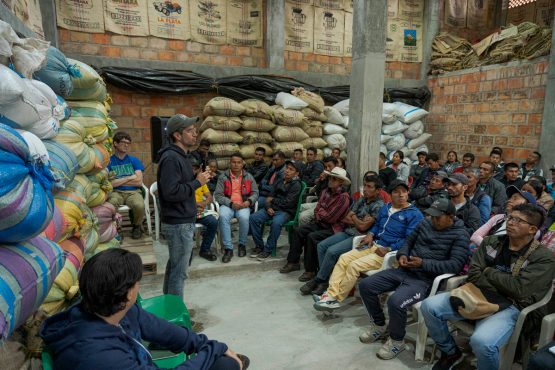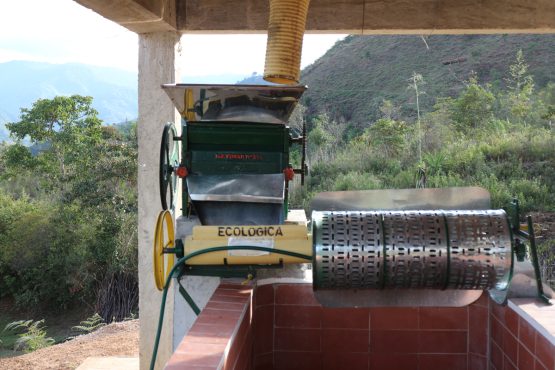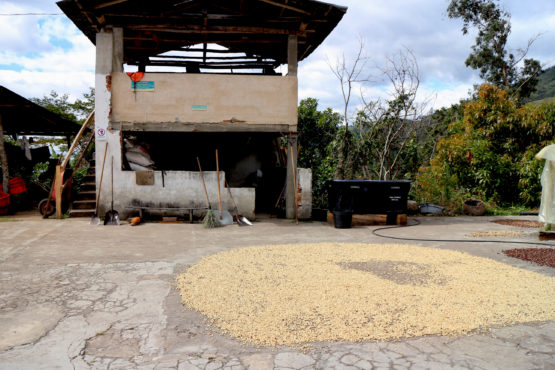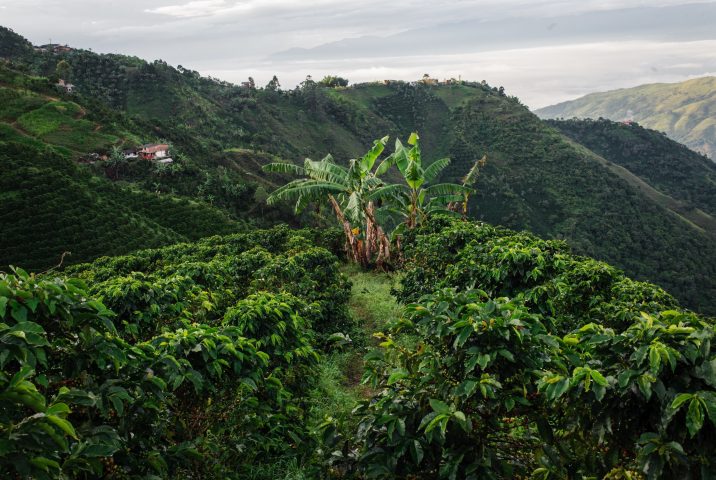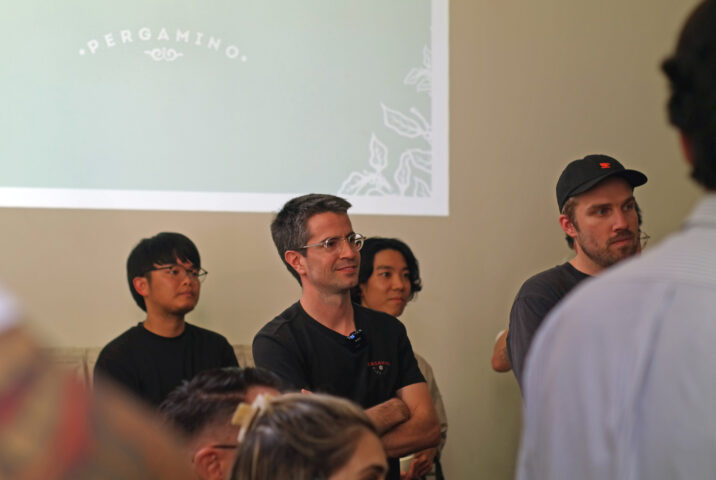El Nogal
Bright and juicy. Lemonade, tangelo and ripe raspberry, with dark chocolate on the finish.
This coffee was produced by Gloria Gómez on her small farm, El Nogal, located near the town of El Tabor, in the municipality of Inzá in Cauca state, Colombia.
El Nogal (which translates to ‘the walnut tree‘ in Spanish) is just one and a half hectares in size – typical for the region, where farmers grow and process coffee on tiny plots of land. The farm is located at a staggering 2,000m above sea level, in the steep hills that surround El Tabor. Gloria has lived in El Tabor her entire life, and is a member of the influential Gómez family, who are highly respected by the town’s coffee growing community. Gloria and her three siblings started their careers in coffee-growing at their parent’s farm, La Argentina. Over time, they have each saved enough money to buy their own plots, though they continue to work together to manage their collective plantations during the season.
A methodical and entrepreneurial producer, Gloria has placed her focus on producing specialty-grade coffee. With the premiums she has received for her crop she has been able to build a new house on El Nogal, where she now lives with her daughter and granddaughter.
El Nogal is mainly planted with the hybrid Colombia variety, which was introduced by Colombia’s Coffee Federation (FNC) in the 1980s as part of the country’s efforts to reduce the incidence of coffee leaf rust without affecting cup quality. Gloria farms her coffee with traditional techniques and most of the labour is provided by her and her family. Fertilisation occurs around three times a year, usually after manual weeding, and pesticides are rarely used.
Like most of the nearby towns, El Tabor has breathtaking views of Colombia’s highest volcano, Nevado del Huila, which sits at the point where the states of Huila, Tolima and Cauca meet. The rich, volcanic soil of the area is ideal for agriculture and contributes to the excellent cup quality of coffees grown and processed here. Cool overnight temperatures result in dense beans, which are notable for their sweetness and complexity. Lower temperatures and high rainfall also influence processing techniques, with longer ferment and drying times being necessary.
ABOUT INZÁ
The municipality of Inzá is located in the corner Cauca state, bordering with Tolima and Huila and looking out to the west over the Pacific Ocean. This region has excellent conditions for growing high-quality coffee, with high elevations and rich volcanic soil. The plateau has a very stable climate year-round thanks to its proximity to the equator and the surrounding mountains, which protect the coffee against the humidity of the Pacific Ocean and the trade winds from the south. This region is an important source of water and wildlife for Colombia, in addition to being prime coffee-growing land.
Inzá is the traditional home of the Nasa (or Páez) people, one of Colombia’s largest indigenous groups. During the Spanish invasion of Colombia, many of the Nasa were able to avoid bloodshed by escaping to the rugged hills and high plateaus of the Andes Mountains where the Spaniards were unable to pursue them. Today, the Nasa economy relies on agriculture, and society is organised into tight knit farming communities who distribute duties equitably under the guidance of cabildos, or locally elected councils. Like many indigenous groups across Latin America, the Nasa have spent decades lobbying for the return of their land rights, finding success in recent years. Their struggle has led to legal recognition of the fundamental rights of indigenous peoples, including recognition of the autonomy of their communal indigenous lands in the 1991 Colombian Constitution.
Coffee from Cauca has historically been very difficult to access due to the region’s isolation and instability. For many years this part of Colombia was under the control of Colombia’s notorious rebel group, the FARC, and as a result, it was unsafe and violent. Since 2012, safe access to this region has been possible as a result of peace talks between the national government and the rebels. Thanks to these efforts, more and more stunning coffees from small producers in the region have become accessible to international buyers.
Our export partners for this coffee, Pergamino, have worked hard commercialise specialty-grade coffee throughout Cauca, and are now able to source some outstanding coffees from very dedicated producers. They work closely with the producers to give them feedback on their coffees (provided by Pergamino’s expert team of cuppers) and provide top up payments when the coffee is sold at a higher premium.
Head here to learn more about the work of Pergamino.
HOW THIS COFFEE WAS PROCESSED
The coffee in this lot was selectively hand-harvested, with most labour being provided by Gloria and her family. It was processed using the washed method at the farm’s ‘micro-beneficio’ (mill).
The coffee was pulped using a small manual or electric pulper and then placed into a fermentation tank, where it was fermented without water for around 24 hours (depending on the weather and the farm’s location) and then washed using clean water from nearby rivers and streams.
The coffee was then carefully dried (over 10–18 days) on concrete patio. Rakes are used to turn the coffee regularly during the drying stage, to ensure even drying. Once dry, the coffee was delivered to Pergamino’s warehouse in Medellín, where it was cupped and graded. Once approved, coffee rested in parchment until it was ready for export.
